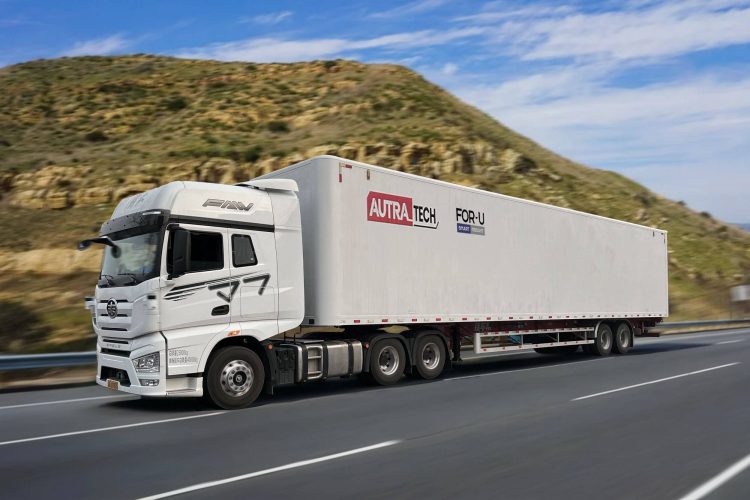The self-driving truck start-up Autra.tech, based in Beijing, has significantly reduced its operations due to severe financing challenges and potential sanctions from the United States. The company, which specializes in autonomous driving technology for trucks, has faced a growing cash flow crisis that has left it unable to support its research, development, and operational costs. This situation led Autra.tech to implement drastic cost-cutting measures, including salary reductions for its employees and the suspension of new vehicle development.
According to an internal memo from CEO Fei Ding, shared in September 2024, the company has taken the difficult step of lowering all employees' salaries to 10,000 yuan (about US$1,408), a significant reduction. The firm also announced the cancellation of plans for new vehicle models and the suspension of new delivery orders. The company’s office in Shenzhen, a key tech hub, was vacated in mid-October, and its office in Guangzhou has also been shut down. At the company’s headquarters in Beijing, many employees are now working from home. Autra.tech has yet to comment publicly on these developments.
These financial difficulties are not unique to Autra.tech but reflect a broader trend in China’s start-up ecosystem. Economic slowdowns and the lack of a viable exit strategy have made it increasingly difficult for new tech companies to secure funding. In fact, recent reports reveal that funding for private-market transactions in China declined by 9.7% year-over-year during the third quarter of 2024.
The autonomous driving sector in China, though still growing, has been particularly hard hit. For instance, while Huawei Technologies secured a significant portion of the funding in the third quarter, most companies in the space, including Autra.tech, are struggling to maintain operations due to tightening cash flows.
Additionally, looming US sanctions are also adding pressure on Chinese autonomous vehicle firms. The US Department of Commerce has proposed new regulations that could ban Chinese-made hardware and software used in connected vehicles, with the restrictions expected to come into effect in 2025 and impact new models by 2027. This policy change is a response to national security concerns, and it could further destabilize China's self-driving sector. As a result, major Chinese companies, such as Baidu and Didi Chuxing, have already started to scale back their road tests in the US.
Autra.tech's story is emblematic of the financial troubles that many smaller companies in China’s autonomous driving industry face. Since its founding in 2021, the company has developed the AutraPilot self-driving software system and co-developed the AutraOne, an intelligent vehicle built in collaboration with Dongfeng Liuzhou Motor. The AutraOne has completed more than 300 cargo transport runs across China. Despite raising over 2 billion yuan (approximately US$278 million) from investors such as SF Express, Baidu, and IDG Capital, the company has been unable to overcome its cash flow problems and regulatory challenges.
In contrast, larger Chinese companies in the self-driving and mobility space, such as WeRide and Pony AI, have seen more success in fundraising, with WeRide recently raising US$440.5 million through an IPO in New York. Autra.tech, however, has struggled to maintain its footing in a competitive and volatile industry, especially as US sanctions loom large.
SOUTHCHINAMORNINGPOST
Read More






 Tuesday, 27-01-26
Tuesday, 27-01-26







